
Updated: October 06, 2023
For many individuals considering vision correction surgery, the following question arises: “Can you get LASIK if you have diabetes?”. At Discover Vision LASIK Centers in Kansas City, MO, we address this and other concerns to ensure our patients receive the best care and results possible. If you’re a diabetic patient thinking about LASIK eye surgery, read on for an overview of everything you need to know.
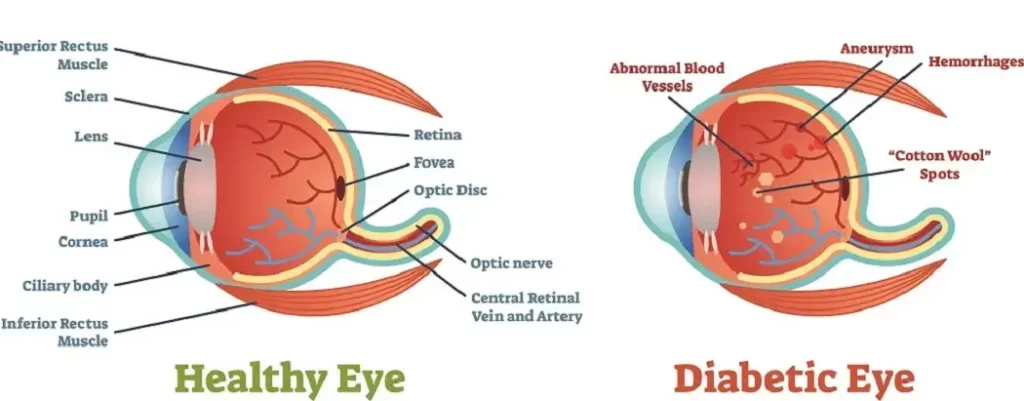
Diabetes can affect the eye in several different ways. For example, large changes in blood sugars can rapidly change your glasses prescription or cause a clouding of the lens inside of the eye, sometimes referred to as a cataract. Additionally, the blood vessels inside your eye can change leading to a condition called diabetic retinopathy. Below, we’ll discuss these and other conditions you can experience as a result of diabetes.
Diabetic retinopathy can be a vision-threatening complication of diabetes. Over time, high blood sugar can lead to changes in the blood vessels inside the eye. These changes can lead to fluid leaving the blood vessels and building up in the retina. This is the most common cause of vision loss in diabetes. In more severe diabetic eye disease the blood vessel changes can prevent the eye from getting enough oxygen or lead to bleeding inside of the eye, called vitreous hemorrhage.
As the blood vessels change, they can become leaky and fluid can leak out from the blood vessels and cause the retina to become swollen, a condition called diabetic macular edema. This can lead to blurring of central and reading vision. Fortunately, this is often treatable with eye injections or laser surgery- contact Discover Vision Centers to learn more.
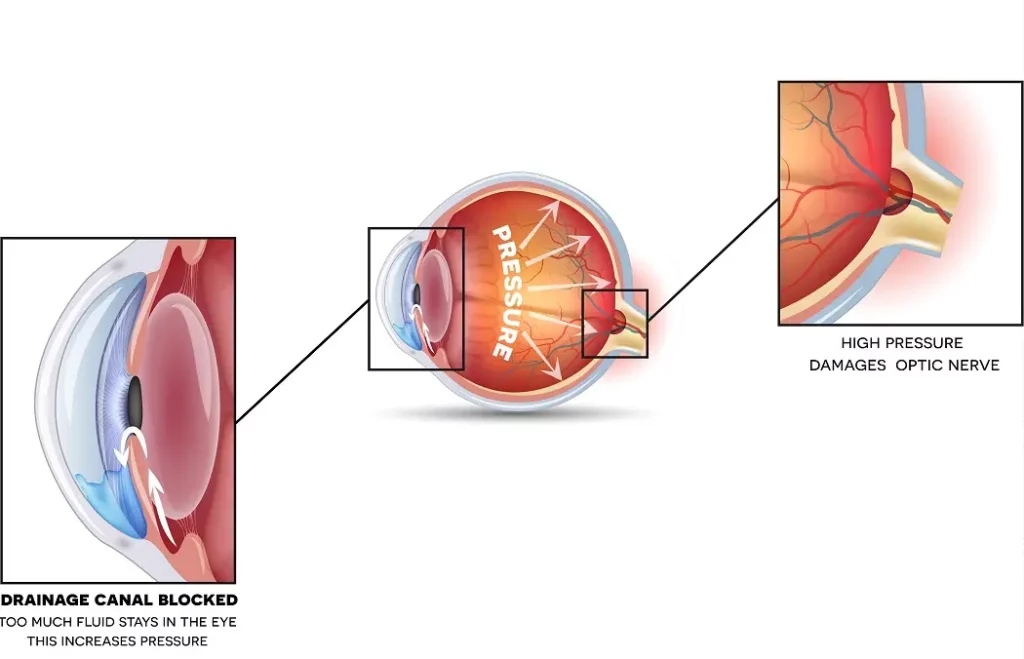
Globally, glaucoma is the second leading cause of blindness, and people living with diabetes are 40% more likely to develop glaucoma, a condition characterized by increased pressure in the eye that, if left untreated, can cause blindness. The increased pressure damages ocular blood vessels and nerves.
Diabetes can lead to two different types of glaucoma: open-angle glaucoma and angle-closure glaucoma.
Open-angle glaucoma is the most common type of glaucoma and occurs slowly over the patient’s lifetime. Diabetic glaucoma symptoms include a loss of peripheral vision. Often, the patient doesn’t realize they have this condition until damage to the optic nerve is severe and they are at risk of going blind.
Angle-closure glaucoma occurs when the angle between the cornea and iris narrows due to a sudden increase in eye pressure. It is less common and the symptoms, including headache, blurred vision, and pain, occur quickly.
If you are diabetic, cataracts may develop at an earlier age than for those who do not have diabetes. This means the lens inside of your eye will become cloudy, leading to blurry vision and glare. Fortunately, the seasoned eye doctors at Discover Vision Centers are able to treat this problem with cataract surgery and restore your vision.
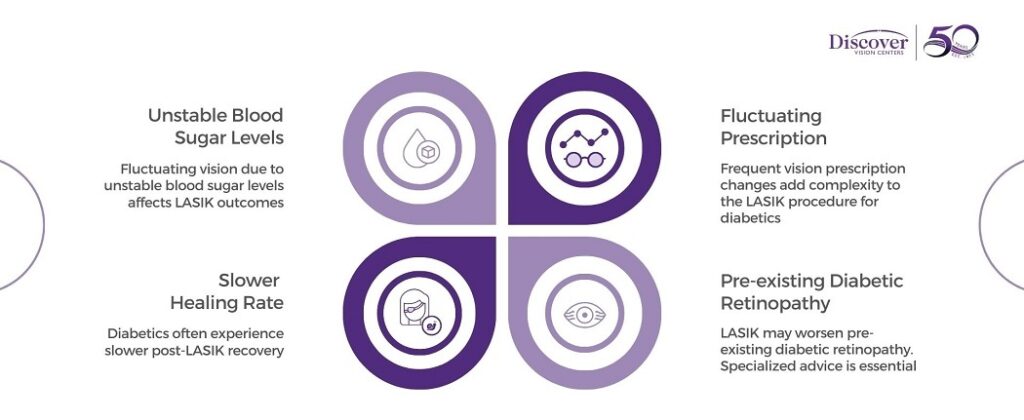
LASIK surgery, though transformative for many, may pose specific challenges for diabetic patients. Here are some of the potential complications diabetic patients should be aware of before undergoing this procedure.
Uncontrolled blood sugar levels can lead to fluctuating vision. Laser vision correction surgery requires a stable prescription, so unstable blood sugar can affect the surgery’s outcome.
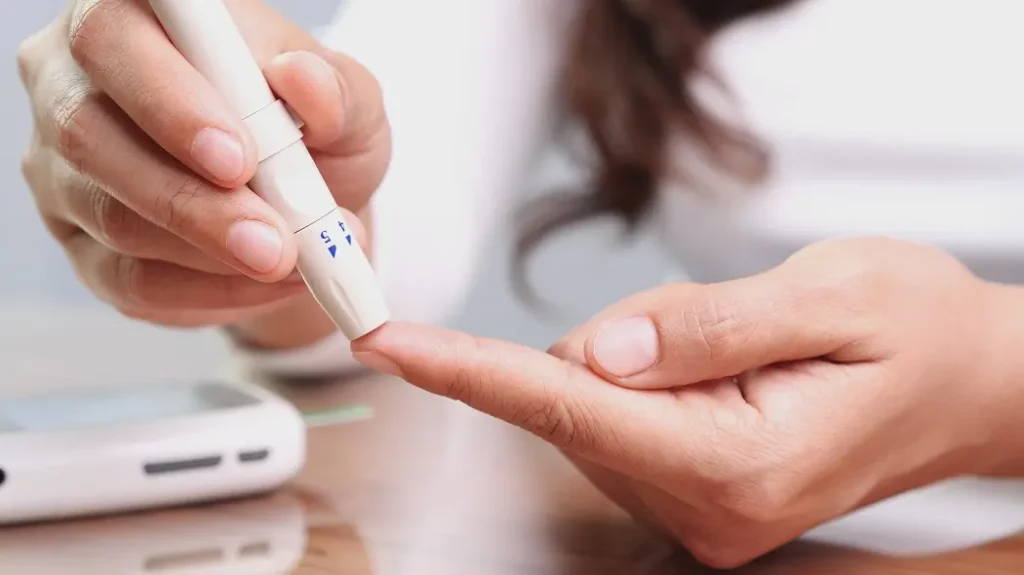
Diabetic patients tend to have a slower healing rate, which might affect their recovery after LASIK eye surgery.
The unpredictable nature of diabetes means that blood sugar levels can frequently fluctuate. This, in turn, can lead to varying vision prescriptions, adding a layer of complexity to the LASIK procedure for diabetic patients.
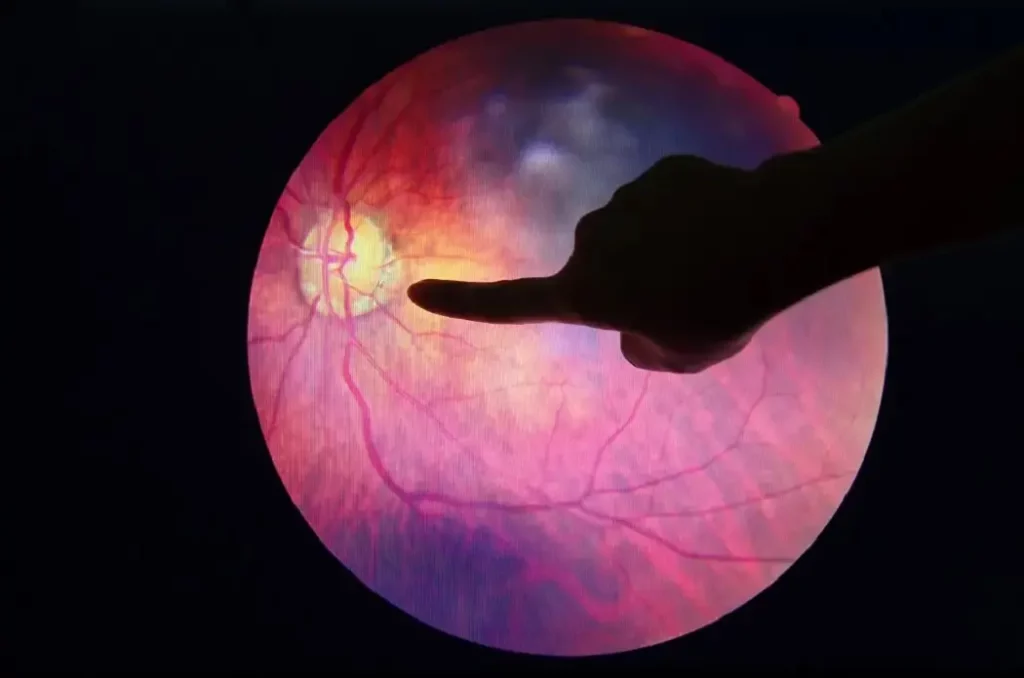
For those with pre-existing diabetic retinopathy, LASIK surgery may not be the ideal choice. Consultation and comprehensive examination prior to undergoing LASIK are required for those even with controlled pre-existing diabetic retinopathy.
It’s essential to determine whether you’re a suitable candidate for LASIK eye surgery. A LASIK surgeon will conduct a comprehensive eye exam, evaluating your blood sugar control, the presence of vision issues like astigmatism, nearsightedness, and/or farsightedness, existing eye conditions, and your overall ocular health to determine if LASIK surgery for diabetics is both safe and effective.
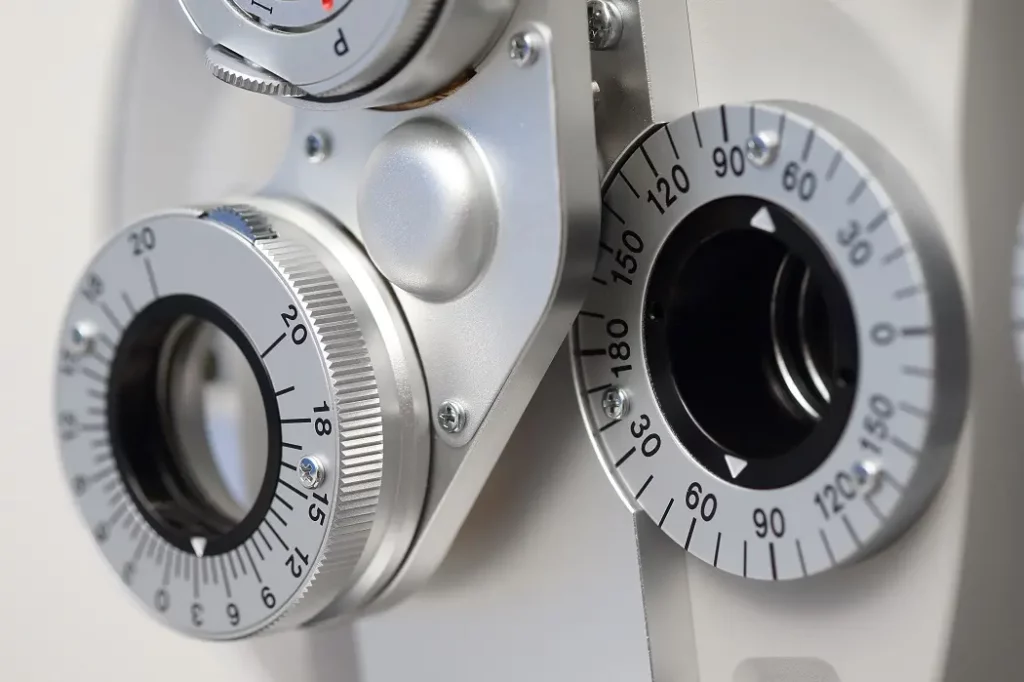
Diabetes, with its linkage to extended healing periods, theoretically suggests a heightened risk of post-surgical infections for diabetic patients. While there’s an inclination to think this might apply to eye surgeries, it’s essential to note that comprehensive studies have yet to provide definitive answers on this correlation. Meaning don’t assume the worst! The evolving advancements in LASIK technology have considerably diminished the post-operative healing period and infections with LASIK are rare diabetes or not.
When examining LASIK in contrast to other laser refractive procedures like PRK (Photorefractive Keratectomy) and SMILE eye surgery, LASIK often has a more favorable recovery timeline than PRK. PRK generally demands a lengthier recuperation phase. While SMILE eye surgery, a newer procedure, boasts minimal invasiveness and a smaller incision, it’s crucial for diabetic patients to understand the specifics of each, especially considering their potential for extended healing due to inconsistent blood glucose levels.
A common temporary post-operative side effect for LASIK and SMILE recipients alike is dry eye. Fortunately, the advancements in LASIK technology have led to a decrease in such occurrences. Typically, most patients notice their dry eye symptoms reverting to their pre-surgery state within the first 6 to 12 months. However, the prolonged healing nature associated with diabetes means these patients might experience a more pronounced intensity of dry eye symptoms.
Stable blood sugar levels and controlled diabetes are critical when considering LASIK eye surgery. Ideally, your diabetes should be well-managed, and you should be free of significant diabetic eye complications.
Considering LASIK but worried about the implications of diabetes or diabetic retinopathy on the procedure? Get a comprehensive consultation with experts who can provide clear insights. Reach out to Discover Vision, where our specialists can go through the nuances of LASIK eye surgery, diabetes, and related concerns with you.
Type 1 diabetes can make LASIK more challenging due to potential complications. However, with careful assessment and a well-managed condition, most type 1 diabetics are appropriate candidates for laser vision correction.
Type 2 diabetics can be suitable candidates for LASIK, provided they maintain stable blood sugar levels and have no significant eye complications.
To conclude, while LASIK eye surgery for diabetics has its challenges, with the right care and consideration, it’s possible. Ensure you consult with a professional from institutions like Discover Vision LASIK Centers in Kansas City, MO, to make an informed decision.